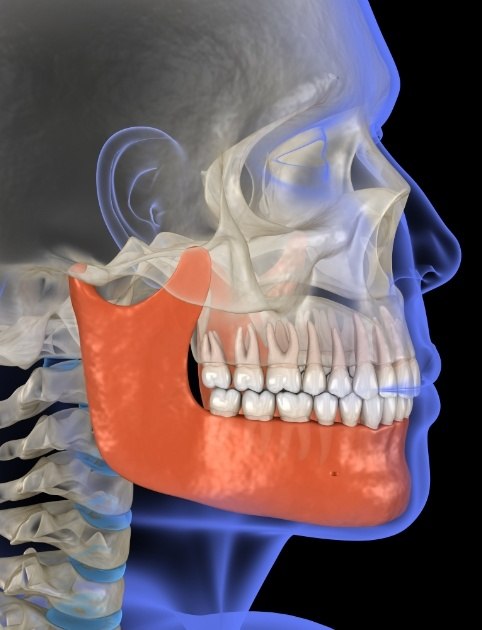What is TMJ Dysfunction? – Topeka, KS
Helping You Find Relief from Face & Jaw Pain
TMD, which stands for temporomandibular joint dysfunction, is a condition that impacts the two joints that hinge your mandibular bone to your skull. They allow you to effortlessly chew, speak, and laugh, but whenever they’re not working correctly or are forced to sustain additional force or tension, it could make daily life difficult. Dr. Michel and our team offer custom-tailored oral appliances to help take the burden off of your temporomandibular joints and enhance their function. If you want an answer to the question, "What is TMJ dysfunction?" Our Topeka, KS dentist is here for you.
Why Choose Sleep Solutions by Michel Dental for TMJ Dysfunction Treatment?
- Advanced Diagnostic BioResearch Technology
- Skilled & Compassionate Dental Team
- Customized Oral Appliances for TMD Therapy
What Causes TMJ Dysfunction/TMD?

TMJ dysfunction can develop as a result of several different underlying issues, including:
- A physical injury that damaged or affected your jaw or facial muscles.
- Arthritis, or inflammation surrounding the temporomandibular joints and other connective tissues.
- Grinding and clenching of the teeth (bruxism) that has placed additional force on your jaw joints.
- Dental infections that have had an opportunity to spread.
It has been observed that men are diagnosed with TMJ disorder at a higher rate than women, so this is also a risk-factor to be mindful of.
What are Common TMD Symptoms?

Some of the most common signs of TMJ dysfunction that our patients experience include:
- Teeth grinding and clenching at night (called bruxism)
- Clicking and popping sounds when you open and close your mouth
- Muscle pain that can be felt in the cheeks and neck
- Chronic migraines and headaches
- Pain radiating from your jaw joints
- Swelling on either side of the face
- Hearing difficulty or ringing ears (tinnitus)
- Grating sound when you open or close your mouth
- General jaw tenderness or pain
- Hearing problems
- An uncomfortable bite
If you notice one or more of these symptoms and are concerned that you have TMJ dysfunction, please don’t hesitate to reach out to our team to schedule a consultation today.
TMJ Treatment FAQs
Can TMJ Be Cured Permanently?
Several factors can cause temporomandibular joint disorders, and some are more long-lasting than others. For instance, it could be caused by temporary teeth grinding during periods of heightened stress, which is more likely to dissipate when the moment has passed. However, it might also be due to more chronic concerns, like untreated sleep apnea.
There are several potential therapies to address your stiff or sore jaw, depending on the cause, and some can have a permanent impact on your dental condition. For example, orthodontic services can address bite misalignments to reduce TMJ-related aches long term.
Is TMJ Treatment Safe?
At our office in Topeka, Dr. Michel offers several options to address TMJ-related stiffness or aches, including splint therapy, neuromuscular dentistry, orthodontic corrections, and other restorative treatments. Many patients wonder whether any of these options come with additional risks that might make them unsafe.
Fortunately, these therapies are generally considered safe and effective when provided by a licensed professional. Several minimally invasive options don’t involve needles or surgery, so there’s no additional risk of infection or other procedural complications.
How Is the Right TMJ Treatment Determined?
Our Sleep Solutions by Michel Dental team is eager to help find effective treatment plans based on your unique TMJ needs. Our office is equipped with state-of-the-art technology that helps us identify the underlying issues, allowing us to tailor your treatment based on our findings.
For instance, we can use a BioEMGIII device to evaluate and record how your facial muscles function when biting, chewing, and at rest to identify where the most strain is occurring to alleviate the pressure. We also use BioJVA joint vibration analysis to determine the amount of friction and vibration occurring in your jaw joints, providing additional insight into how to address these issues.
How Long Does TMJ Treatment Take?
There are several options for addressing jaw-related aches and tension, and the length of time it takes them to start working depends on your individual circumstances. Some treatments tend to work faster than others. For example, occlusal adjustments that alter your enamel can have an immediate impact, while muscle therapy can take longer to have an effect.
The timeline also relies significantly on the severity of your condition. If you have more intense misalignments or sleep apnea, it can take longer to address the underlying concern resulting in your jaw pain.

